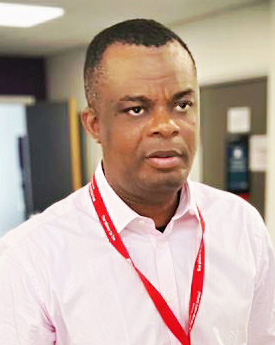Our information systems research takes a robust interdisciplinary approach to study socio-technical principles in the design and use of information systems within organisations, businesses, and society in general. We use both qualitative and quantitative methods to study the effects of technology in various aspects of human use of technology in the personal level and in the context of work and organisations.
We have natural links within the Department of Management Science with operations, Systems/Soft OR (through problem structuring and methodology and action research). We are also involved in the Centre for Technological Futures and the Institute for Social Futures.
Within the wider Management School, the group has complementary and teaching research interests with the Department of Organisation, Work and Technology and across the wider University, there are links with the School of Computing and Communications and the School of Arts through the inter-disciplinary ESRC-funded HighWire Doctoral Training Centre, which includes PhD supervision and Centre co-directorships.
Key projects by members of this research group
- Professor João Baptista's primary research interests focus on digital work and digital innovation within organisations, and in studying the effects of technology in ways of organising and the shape of modern organisations. This includes studying inherent tensions between forces for innovation and forces for efficiencies, security and compliance within organisations. He is also involved in projects at national level on environmental sustainability, digital resilience and climate change.
- Dr Amjad Fayoumi's research interests lie in the area of architecting and designing enterprises, digital services and systems through using tools such as enterprise architecture frameworks, enterprise modelling, design rationale, and system dynamics modelling. His works applied across different sectors such as manufacturing, healthcare, public services and cybersecurity.
- Dr Mahsa Honary is a lecturer in Information Systems, and her research is focused on digital health innovation. Her research is interdisciplinary, human-centred and problem-driven. She is interested in the design, development and evaluation of health information systems, users’ behavioural analysis and technology adoption models. She is motivated by real-world problems in public health systems and processes to improve the quality of care for patient benefit.
- Professor Niki Panteli is a Professor of Digital Business in the Department of Management Science. Her main research interests lie in the areas of digital transformation, digital health, online collaborations, online communities, e-leadership and more recently cybersecurity management. She led and participated in several research projects and her work appeared in numerous top-ranked academic journals. She is currently the President of the UK Academy of Information Systems (UKAIS).
- Professor Andreas Schroeder is a Professor of Digital Strategy and Services Innovation at Lancaster University Management School. His research program lies at the intersection of Operations Management and Information Systems, focusing on directly impacting organisational practices. Much of Andreas’ work revolves around ‘servitisation’, which refers to the transformation of product-focused manufacturers as they develop and increasingly compete through high-value service offerings.
- Dr Casey Wilson’s research interests focus on complexity and problem-solving, with a particular interest in the application of Soft Systems Methodology (SSM). She is particularly interested in the pedagogy of teaching SSM and the role of systems approaches in curriculum development for both face-to-face and online teaching materials.
- Dr Shiyan Zhang's research is primarily rooted in the field of the future of work, where she views the space of work as a complex ecosystem with interconnected subsystems coevolving together. She's interested in understanding structural characteristics of occupations and skills, as well as their impacts on labour outcomes. She's also interested in the role of digital innovations in the workplace, especially in the context of knowledge work. Her ongoing projects include interdisciplinary effort to examine how computational tools, including AI-powered tools can assist knowledge workers and support their creativity.
- Dr Ruilin Zhu's research focuses on information systems (IS) security, privacy concerns, and digital innovation. Specifically, he leverages the traditional technical view through integrating behavioural, economic, and legal perspectives in order to understand IS phenomena. His academic work builds on previous IS expertise gained from working for leading financial and banking institutions and being a visiting scholar at a number of prominent academic institutions.
Key areas of research
- Digital innovation and organisational transformation
- Inter-organisational relationships/processes
- Reach/richness-enabled impacts of IST, such as online privacy and social influence
- Digital capabilities in modern organisations
- Sustainability, climate change and digital resilience
- Industry sectors such as small business enterprises (SME’s) and healthcare
- Project management of ERP implementations
- Social and technical complexity inherent to large multi-vendor ERP programmes
- Online collaborations and online communities
- Digital and cybersecurity leadership
- Gender Issues in IT and high tech sector
- Hybrid work and work analytics
- Design and architecture of digital platforms
- Industries servitisation and cyber-physical systems
All of these areas draw from various social and technical theoretical perspectives. Much of the work includes an international focus. The levels of analysis include individual, group and organisational.
Research opportunities
The group has a strong PhD programme focused on the themes outlined above. We welcome PhD and postdoctoral students in these areas. We are also open to other areas of research that fit our theoretical or methodological strengths - which include a broad range of qualitative and quantitative work. If you are interested in a topic not listed above, you should write a brief description of the topic and why it may be of interest to a potential supervisor, sending it to our IS PhD Co-ordinator João Baptista.
Management Science PhD














